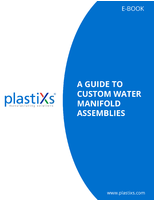ASTM invites involvement in catalysts standards development.
Press Release Summary:
During virtual meeting, Committee D32 held open house for potential new members, which featured introduction to ASTM, explanation of Committee's mission, and highlights of committee's active task groups. Primary focus of D32 has been on heterogeneous catalysts, including refining and petrochemical applications, raw catalytic materials, and finished catalyst systems. Committee hopes to expand to include emission control catalysts, homogeneous catalysts, and enzymatic catalysts.
Original Press Release:
ASTM International Committee D32 on Catalysts Invites Involvement in Its Standards Developing Activities
W. CONSHOHOCKEN, Pa., November 20, 2009-During a virtual meeting on Oct. 28, Committee D32 held an "open house" for potential new members. The open house featured an introduction to ASTM, an explanation of Committee D32's mission, and highlights of the committee's active task groups. A recording of this webinar can be viewed on Committee D32's Web site.
Founded in 1975, ASTM Committee D32 develops test methods, classifications, practices and terminology pertaining to catalysts, zeolites and related material used in their manufacture, and the stimulation of research related to these materials. Committee D32 coordinates its work with other ASTM committees and other organizations having mutual interests, such as the North American Catalysis Society, the American Chemical Society and the American Institute of Chemical Engineers.
Since its formation, Committee D32 has approved more than 40 standards. In addition, the committee works to stimulate research in the catalyst area through workshops, symposia, presentations and other publications, including research reports. The primary focus of D32 has been on heterogeneous catalysts, including refining and petrochemical applications, raw catalytic and support materials as well as finished catalyst systems and catalysts containing zeolites, precious metals and metal oxides.
While continuing work in these areas, the committee hopes to expand to include the following new subjects: emission control catalysts for both automobile and stationary sources; homogeneous catalysts; and enzymatic catalysts.
Membership in D32 currently includes producers, users and others who reflect the global catalyst community. Standards are developed within the following subcommittees:
ASTM International welcomes and encourages participation in the development of its standards. For more information on becoming an ASTM member, visit http://www.astm.org/JOIN.
ASTM International is one of the largest standards development and delivery systems in the world. ASTM International meets the World Trade Organization (WTO) principles for the development of international standards: coherence, consensus, development dimension, effectiveness, impartiality, openness, relevance and transparency. ASTM standards are accepted and used in research and development, product testing, quality systems and commercial transactions.
ASTM Committee D32 Next Meeting: April 19-20, 2010, April Committee Week, St. Louis, Mo.
Technical Contact: Marshall Margolis, Lummus Technology, Bloomfield, N.J., Phone: 973-893-2779; mmargolis@cbi.com
ASTM Staff Contact: Kathleen McClung, Phone: 610-832-9717; kmcclung@astm.org
ASTM PR Contact: Barbara Schindler, Phone: 610-832-9603; bschindl@astm.org
www.astm.org




